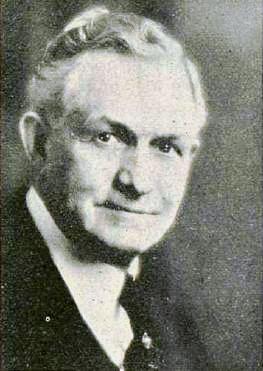“An Unsatisfied Appetite for Knowledge Means Progress and Is the State of a Normal Mind”
Title of Valedictorian address (1897)
David Oman McKay was an American religious leader and educator who served as the ninth president of The Church of Jesus Christ of Latter-day Saints from 1951 until his death in 1970. Ordained an apostle and member of the Quorum of the Twelve Apostles in 1906, McKay was a general authority for nearly 64 years, longer than anyone else in LDS Church history, except Eldred G. Smith . Wikipedia

“An Unsatisfied Appetite for Knowledge Means Progress and Is the State of a Normal Mind”
Title of Valedictorian address (1897)
At Brigham Young University, reported in Church News, May 28, 1960.
Improvement Era (October 1958) pp 718-719
Context: Next to life we express gratitude for the gift of free agency. When thou didst create man, thou placed within him part of thine omnipotence and bade him choose for himself. Liberty and conscience thus became a sacred part of human nature. Freedom not only to think, but to speak and act is a God-given privilege.
“Next to life we express gratitude for the gift of free agency.”
Improvement Era (October 1958) pp 718-719
Context: Next to life we express gratitude for the gift of free agency. When thou didst create man, thou placed within him part of thine omnipotence and bade him choose for himself. Liberty and conscience thus became a sacred part of human nature. Freedom not only to think, but to speak and act is a God-given privilege.
LDS General Conference (October 1964)
Context: The rising sun can dispel the darkness of night, but it cannot banish the blackness of malice, hatred, bigotry, and selfishness from the hearts of humanity. Happiness and peace will come to earth only as the light of love and human compassion enter the souls of men.
It was for this purpose that Christ, the Son of righteousness, 'with healing in his wings,' came in the Meridian of Time. Through him wickedness shall be overcome, hatred, enmity, strife, poverty, and war abolished. This will be accomplished only by a slow but never-failing process of changing men's mental and spiritual attitude. The ways and habits of the world depend upon the thoughts and soul-convictions of men and women. If, therefore, we would change the world, we must first change people's thoughts. Only to the extent that men desire peace and brotherhood can the world be made better. No peace even though temporarily obtained, will be permanent, whether to individuals or nations, unless it is built upon the solid foundation of eternal principles.
LDS General Conference (October 1964)
Context: The rising sun can dispel the darkness of night, but it cannot banish the blackness of malice, hatred, bigotry, and selfishness from the hearts of humanity. Happiness and peace will come to earth only as the light of love and human compassion enter the souls of men.
It was for this purpose that Christ, the Son of righteousness, 'with healing in his wings,' came in the Meridian of Time. Through him wickedness shall be overcome, hatred, enmity, strife, poverty, and war abolished. This will be accomplished only by a slow but never-failing process of changing men's mental and spiritual attitude. The ways and habits of the world depend upon the thoughts and soul-convictions of men and women. If, therefore, we would change the world, we must first change people's thoughts. Only to the extent that men desire peace and brotherhood can the world be made better. No peace even though temporarily obtained, will be permanent, whether to individuals or nations, unless it is built upon the solid foundation of eternal principles.
“Freedom of choice is more to be treasured than any possession earth can give.”
LDS General Conference Report (April 1950) page 32
“No other success can compensate for failure in the home.”
Quoted from J. E. McCullough, Home: The Savior of Civilization [1924], 42; Conference Report, Apr. 1935, p. 116.
Improvement Era (February 1962) p. 86